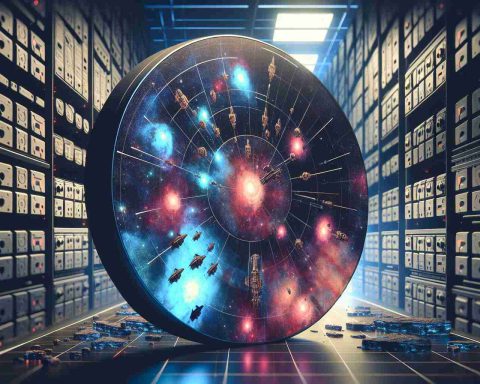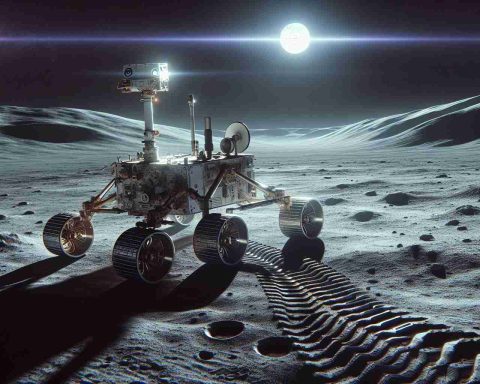- Sustainable innovations are transforming the space industry, focusing on reducing the carbon footprint of rocket launches.
- Biofuels are emerging as a key solution, promising cleaner space missions by lowering emissions compared to traditional rocket fuels.
- Companies like Blue Origin and SpaceX are investing in making biofuels more efficient and reliable for future launches.
- Reusable rockets, like SpaceX’s Falcon 9, exemplify efforts to minimize launch waste and enhance cost-effectiveness.
- AI integration in launch processes improves precision, optimizes fuel usage, and boosts safety, enhancing resource conservation.
- The movement towards sustainable space exploration underscores a commitment to environmental responsibility and a cleaner future.
In recent years, the focus has shifted toward developing eco-friendly technologies, and rocket launches are no exception. With climate change taking center stage in global discussions, the space industry is now exploring sustainable rocket launch solutions that could revolutionize how humanity accesses outer space.
Amid this transformative phase, a groundbreaking technology has emerged: the use of biofuels in rocket engines. Unlike traditional rocket fuels, biofuels promise to reduce the carbon footprint of space missions significantly. Companies like Blue Origin and SpaceX are investing in research to make these biofuels more efficient and reliable, laying the groundwork for a new era in space travel.
An added innovation is the development of fully reusable rockets, aiming to minimize the waste produced during launches. The concept of reusability has already proven successful with rockets like SpaceX’s Falcon 9, but the future promises even greater advancements. Upcoming rocket systems are expected to be entirely recuperable and increasingly cost-effective, reinforcing sustainability and economic viability.
Furthermore, the integration of AI in launch processes enhances precision and safety, reducing human error. AI-supported systems can optimize fuel consumption and predict maintenance needs, preventing potential failures and further conserving resources.
The shift towards sustainable space missions not only ensures the longevity of space exploration but also reflects a growing commitment to environmental responsibility. As these technologies mature, they herald an exciting—and cleaner—future for humanity’s ventures beyond our planet.
Eco-Friendly Launch Innovations: The Future of Sustainable Space Travel
Introduction
The space industry is undergoing a transformative evolution, focusing on sustainable rocket launch solutions as an integral part of eco-friendly technological advancements. With global discussions on climate change intensifying, space companies are striving to balance exploration with environmental responsibility. This article delves into the latest trends, innovations, and challenges in sustainable space travel, examining biofuels, reusable rockets, and AI integration.
Key Developments in Sustainable Space Travel
# 1. Biofuels in Rocket Engines
Insights: The use of biofuels in rocket engines could drastically reduce the carbon footprint of space missions. Biofuels offer a cleaner alternative to conventional fuels and are becoming increasingly viable thanks to significant investments in research by leading aerospace companies like Blue Origin and SpaceX.
# 2. Fully Reusable Rockets
Features: Reusable rockets minimize waste and enhance the cost-effectiveness of space operations. SpaceX’s Falcon 9 has set a precedent in reusable launch technology. Future rocket systems aim to improve these designs, making launches entirely recuperable and even more economical.
# 3. AI Integration in Launch Processes
Innovations: Artificial intelligence plays a critical role in optimizing launch precision and safety. AI systems can manage fuel efficiency, predict maintenance needs, and reduce the likelihood of human error, thereby conserving resources and enhancing mission success rates.
Top Related Questions
# 1. What are the pros and cons of using biofuels in rocket engines?
Pros:
– Significantly lowers carbon emissions.
– Uses renewable resources, enhancing sustainability.
– Reduces dependency on traditional fuels with volatile markets.
Cons:
– Current biofuel technology is less efficient than traditional rocket fuels.
– High production costs and scalability challenges.
– Limited availability of suitable biofuel sources for space-grade applications.
# 2. How does rocket reusability contribute to economic and environmental sustainability?
Answer: Rocket reusability reduces the costs associated with manufacturing and launching new rockets, thus lowering the overall expense of space missions. Environmentally, it decreases the waste and pollution generated by multiple launches. This sustainability approach aligns with broader global eco-friendly trends and promotes long-term exploration viability.
# 3. What role does AI play in enhancing the safety and efficiency of rocket launches?
Answer: AI enhances rocket launch safety by optimizing trajectories and fuel consumption, predicting mechanical failures, and providing data-driven insights for decision-making. This reduces human errors, improves operational efficiency, and minimizes environmental impacts, ensuring more reliable and eco-conscious launches.
Suggested Links
– SpaceX
– Blue Origin
Conclusion
The drive toward sustainable rocket launches is setting the pace for a new era in space exploration—one that prioritizes environmental stewardship alongside technological innovation. As these developments continue to evolve, they promise a future where space travel is not just a venture into the cosmos but also a testament to humanity’s commitment to a cleaner, more sustainable planet.

















